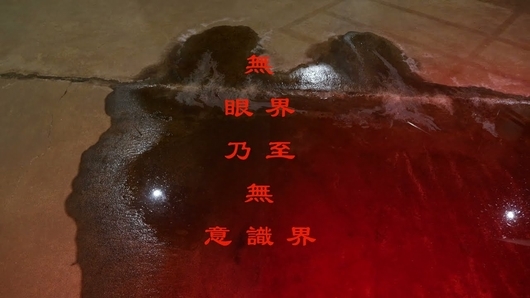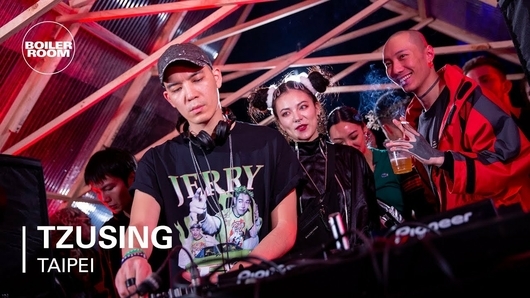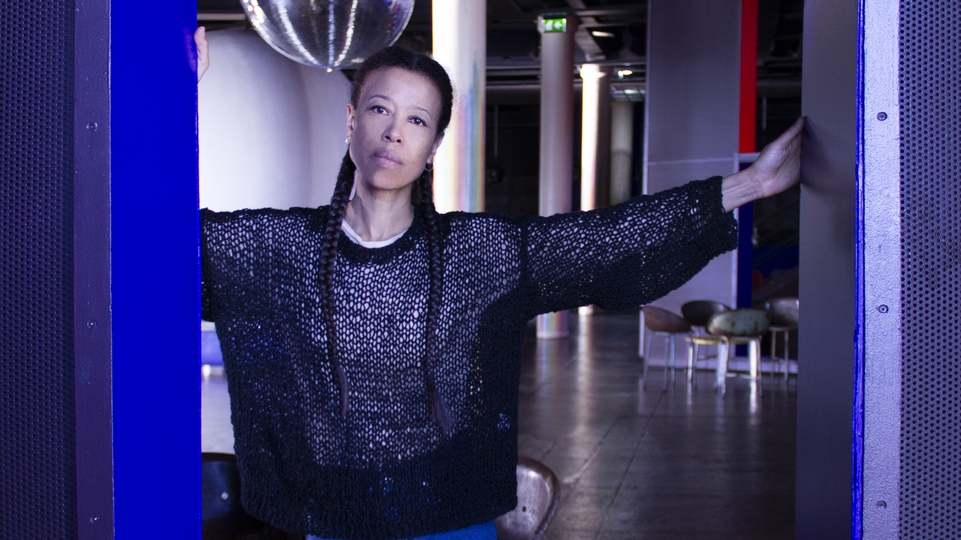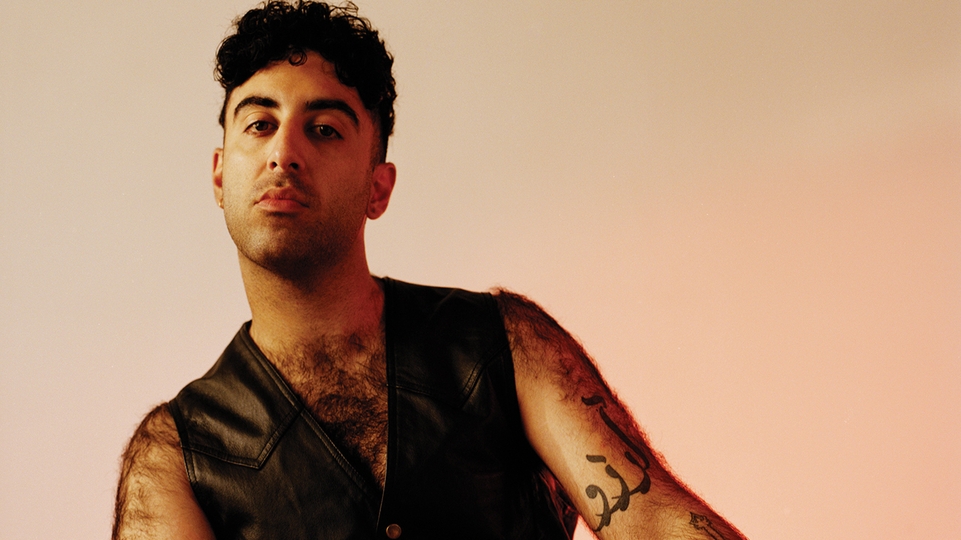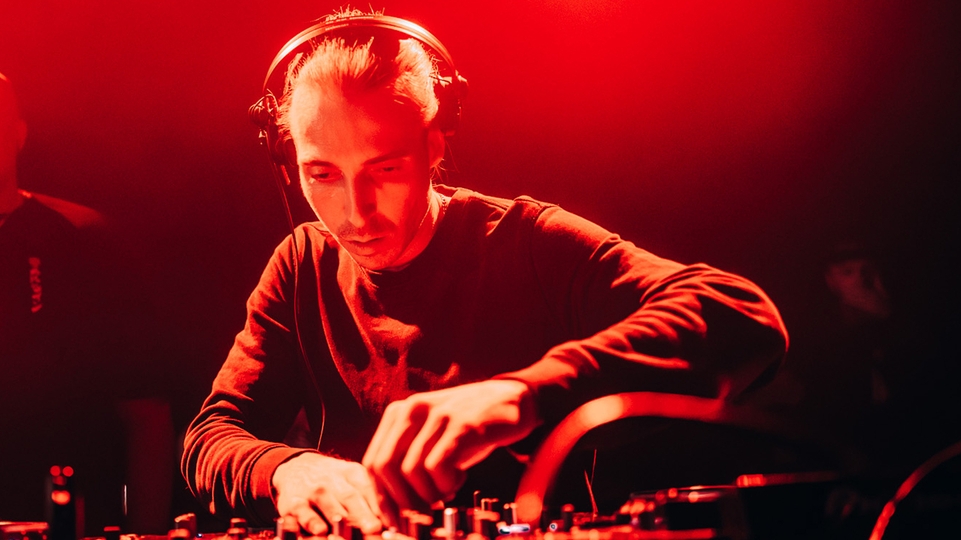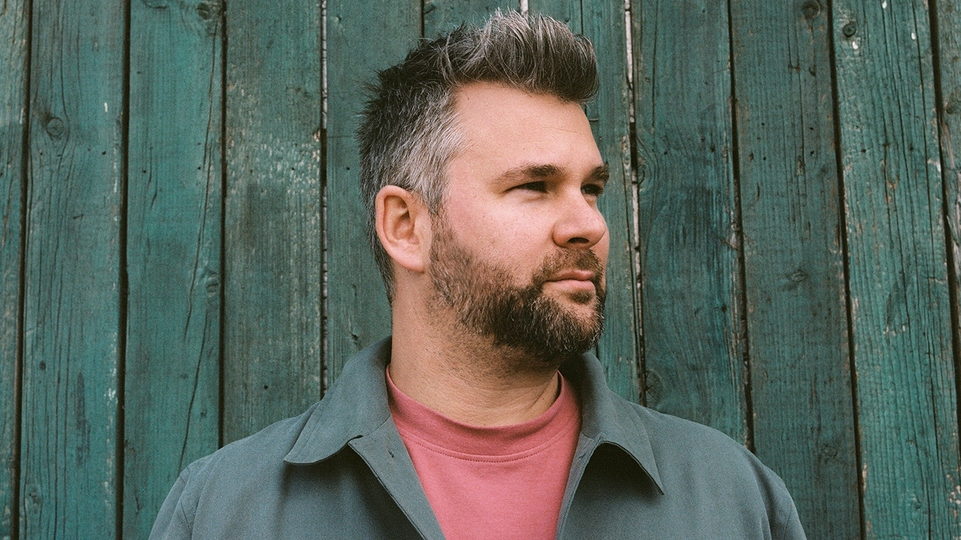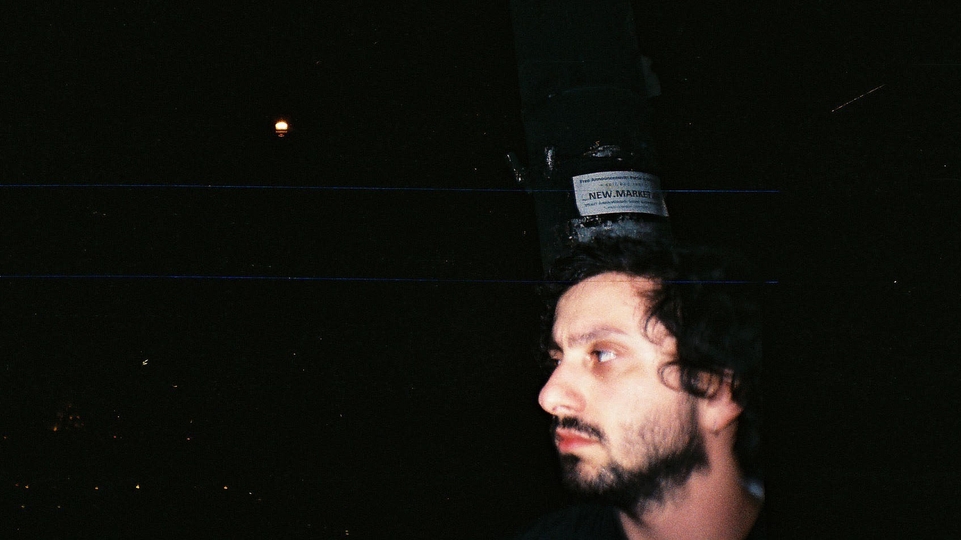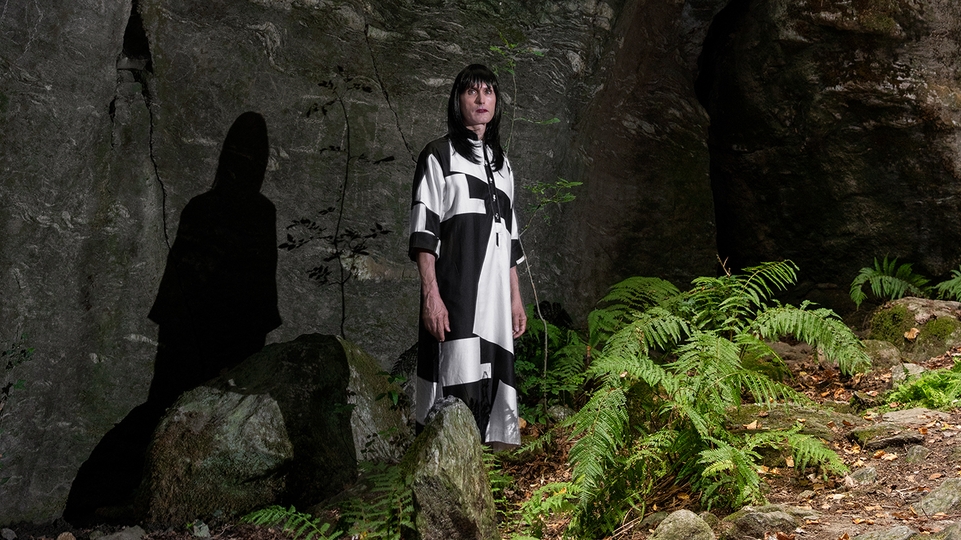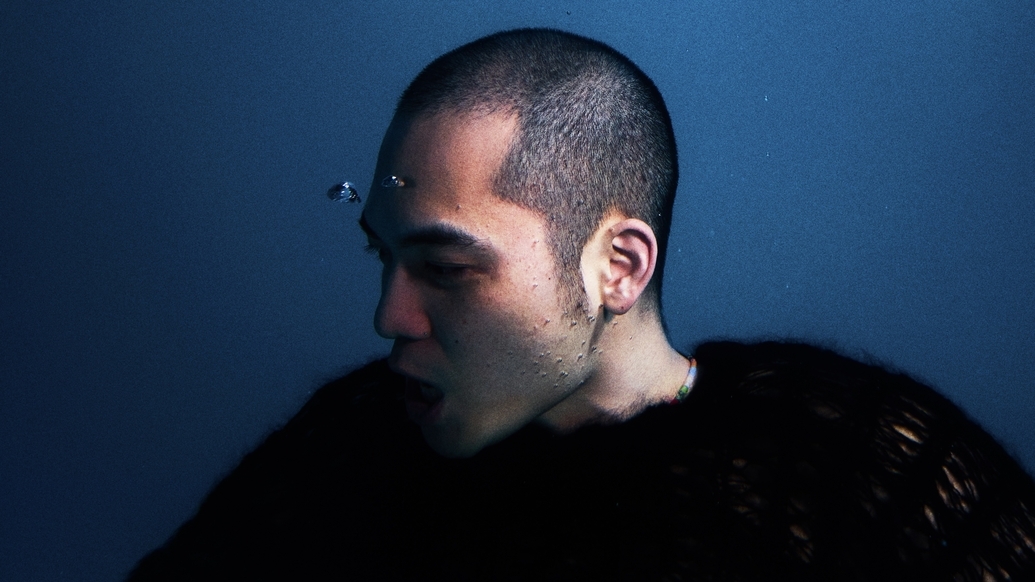
Tzusing's shapeshifting club music
Founder of the Sea Cucumber imprint, and a L.I.E.S. label regular, Tzusing is a stylistic shapeshifter with an impeccable ear for detail. Niamh O'Connor speaks to him about his recent album for PAN, ‘绿帽 Green Hat’, how his sound has been informed by cultural and familial pressures, his approach to DJing, and his time spent living in parts of Asia and the US
“The moment I heard electronic music, I wanted to make it, and I wanted to figure out what a DJ was,” says Tzusing over Zoom from Taiwan. “I didn’t know what a DJ was doing. I thought the DJ was maybe making music with vinyl. I didn’t know what vinyl really was, you know, just these two black platters. I didn’t know what the hell this thing was, but I just knew they were using it somehow, right?”
Over two decades, Tzusing figured it all out and more. He played around the world, landed a residency at Shelter, Shanghai, released his breakthrough trilogy ‘A Name Out Of Place’ on Ron Morelli’s L.I.E.S. label, and launched his own label, Sea Cucumber. While his debut trilogy in 2014 channelled industrial techno and EBM, several more productions on Public Possession, Bedouin Records, and SVBKVLT conveyed his genre-hopping style.
Tzusing’s first LP, ‘東方不敗 Invincible East’ on L.I.E.S. in 2017, marked his first thematically focused body of work, exploring masculinity and power. In a way, it’s connected to his second album ‘绿帽 Green Hat’, released via PAN in March — a thematically and sonically heavy album delving into “familial obligations”.
“My introduction to the idea of the green hat was actually from my dad getting very upset at my brother for wearing a hat with a green brim,” explains Tzusing. “In Chinese culture, it means you’re a cuck, which I had no idea of as a kid. A lot of this anxiety stems from expectations from my dad and him being very traditional Chinese, and him having these ideas of what it means to be a man and how to be a son, and how to go about my life. So ‘绿帽 Green Hat’ is actually me dealing with my anxiety of both these things.”
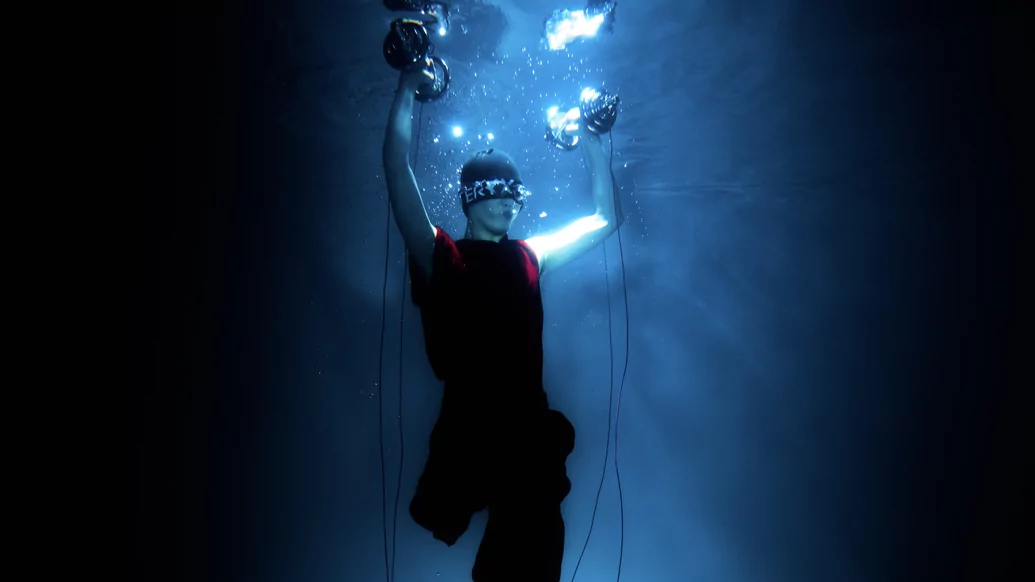
Indeed, the LP bristles with anxiety and urgency. The atmosphere on tracks like ‘Muscular Theology’ is pierced with shrieking melodies, disturbing sound effects and destructive drums, while the hectic ‘Exascale’ features air-suction sounds and a manic synthline. Impeccable sound design ripples through the release, and Tzusing shouts out Enyang Urbiks and jondu, who mastered and mixed the record, respectively. “I spent an insane amount of time on each song,” he says. “Writing some songs took maybe four years, and I know that sounds crazy, but if I have an idea I like, I will try to work it until it’s fully formed. I don’t want to just chop things away and restart again. So I’ll do something to death.”
Born in Malaysia, Tzusing grew up in Singapore and spent his early teens in Taiwan, where he started clubbing at 14. While he had MTV at home, he’d wait in the club all night to hear a Prodigy track or a Chemical Brothers song on a club sound system. Tzusing moved to China in his late teens, at a time when the country imported garbage, including unsold “cut-out” CDs — which had a hole punched near the inner circle or close to the rim — from the US. Though they were intended for landfill, the “black market guys” would take the CDs, file down the holes and sell them. “So I would buy the CDs for like 50 cents,” he remembers, citing artists from Mariah Carey to Tiësto, Aphex Twin to Cabaret Voltaire’s Richard H. Kirk in his inaugural collection. “I didn’t have context for any of this stuff. I didn’t know what was cool, like, ‘Oh cool, you're listening to this and not cool for [listening to] that’. I didn’t know.”
Today, Tzusing is unpretentious in his selections, weaving hard drum, house, techno, hip-hop edits, and non-Western pop among many other genres in his DJ sets. But he's prompt to point out that running his bike parts business, which gives him another source of income, has granted him the freedom to take more risks and stay true to his creative vision as both a DJ and producer.
Tzusing first dabbled in production in his teens with a Roland Groovebox, but he was disappointed with the piece of hardware. “I actually wanted to make, like, Portishead kind of music,” he says. “So I bought this box, and you totally couldn't make Portishead music.” Discovering a “very basic” sequencer and sampler software called Sonic Foundry Acid helped him get a better grasp of production. “I was able to piece [together] beats from a CD — I think it was a DJ Krush CD — and add some sound FX. I could just layer stuff and start experimenting a little bit.”
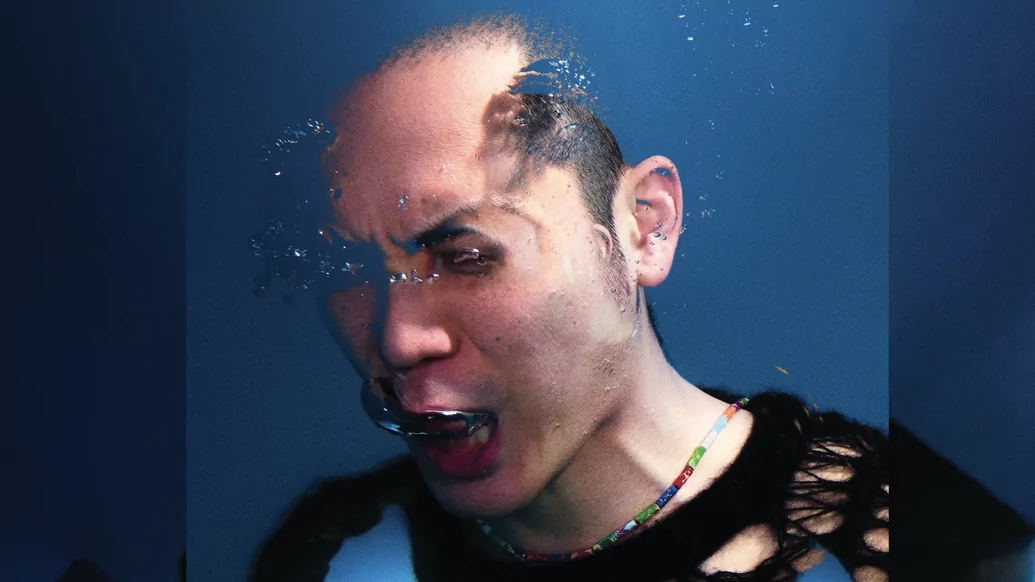
Tzusing spent his final year of high school in San Diego, where he bought a secondhand pair of Technics and a mixer and taught himself how to mix. He then moved to Chicago to study Digital Media, and after graduating returned to China for “familial obligations”. Tzusing lived in an industrial zone an hour outside of Shanghai, set up his business and paused music.
“Spending four or five years in the industrial zone really solidified my idea for the sound I wanted to create and let me know what really resonated with me,” he says. “Having that time away from music while doing business, but still thinking about music.” In 2011, Tzusing returned to music. He moved closer to Shanghai and got a residency at Shelter, where he DJ'd to a dancefloor of “mostly ex-pats”, though the scene has evolved since. “Now the club is all Chinese kids. There’s still a lot of ex-pats in Taiwan, but Final — the club that I play at now — is 90% Taiwanese kids.”
Considering the wildly varied nature of Tzusing’s sets, we’re curious to know if he spends a large chunk of time preparing. “When you start playing very different genres and music that comes from different cultures, you really have to find tracks that can bridge each other,” he replies. “So now I really have to plan it.”
But DJing and making music doesn't feel like a job to Tzusing. “People go to clubs because they’re working all week, they’re tired, they want to have fun, right?” he says. “And they go there and they see another person playing tracks that sound like they are made by someone in a cubicle, and they’re playing a set that sounds careerist. It’s like, you just came from work, I don’t want to see someone at work, you know? It’s as if the tracks are made by someone that’s like, ‘Fuck, I have to make four tracks this week; let me pump it out’.”
Tzusing's non-careerist, unrushed and considered way of going about the craft is refreshing. It’s reflected in a story he tells us about watching Theo Parrish play a jazz record for five minutes without clearing the floor of Smartbar, which inspired the then-college student Tzusing. “But the only way you can really do that is if you build a name for yourself. You need to have people come specifically for you to know you do this kind of shit, and they will stick around. I think with the whole DJ side of my career, I’ve been trying to hopefully build to that one day. I don’t know if it's possible.” From where we’re sitting, it feels like Tzusing is already there.
